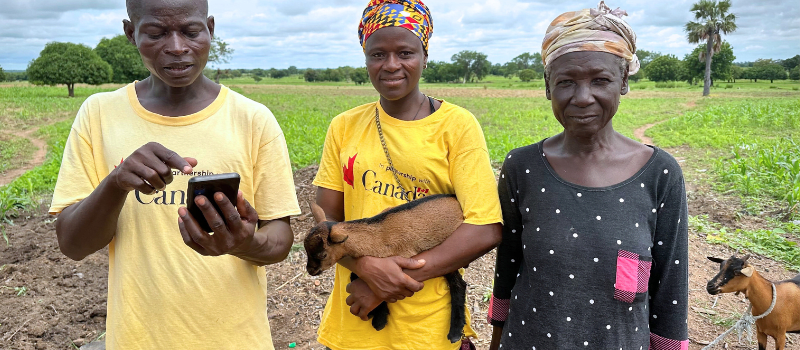This blog was contributed by alumni VWB/VSF VETS volunteer, Remmy Mugambi Kiogor.
In small-scale dairy farming across Kenya, training farmers in best farming practices plays a vital role in calf care. Success in this area directly impacts the overall productivity of local dairy farms. Helping to strengthen the health of animals and people, through VWB/VSF's Volunteers Engaged in Technical Solutions (VETS) model, is part of VWB/VSF's one health model, which encourages healthy animals, healthy people, and a healthy environment.
 Mauku’s calf in the newly constructed calf pen with provision for water, forage, and young stock pencil.
Mauku’s calf in the newly constructed calf pen with provision for water, forage, and young stock pencil.
One successful story from recent VETS training involved Charles Mauku, a COHC member from Nkandone Dairy Society who received rigorous training on calf rearing and diseases. The goal was to breed heifers at a younger age, specifically between 12 to 15 months old. Prior to the training, Mauku faced challenges, as most of his calves were succumbing to illnesses like diarrhea and respiratory issues. However, armed with newfound knowledge that he acquired through VETS training sessions, Mauku constructed a calf pen to prevent sunburns and diarrhea, and meticulously provided timely colostrum, milk, water, pellets, and high-protein fodder. The results were remarkable; within just three months, his calf's weight tripled, and the animal remained healthy without a single reported illness. Compared with his other calves, Mauku noted a lot of economic gain from saving money he was using previously to treat calves and loss of those calves. The calf is also healthier and this has given him hope of getting a better cow in near future. Mauku's economic gains from avoiding calf losses and costly treatments inspired him, and his farm has become a demonstration site, drawing the interest of fellow farmers eager to duplicate his success and ultimately increase their milk production. With the positive outcomes of this training spreading, calf rearing practices are set to scale up, promising healthier cows and higher milk yields for the entire community. His wife also shared the change with her friends during women group meetings and many are visiting them to learn and duplicate the idea in their farms.
Interested in becoming a volunteer with our VETS program? We're recruiting volunteers! Take a look at our current opportunities here. The VETS program is generously funded by Global Affairs Canada.




